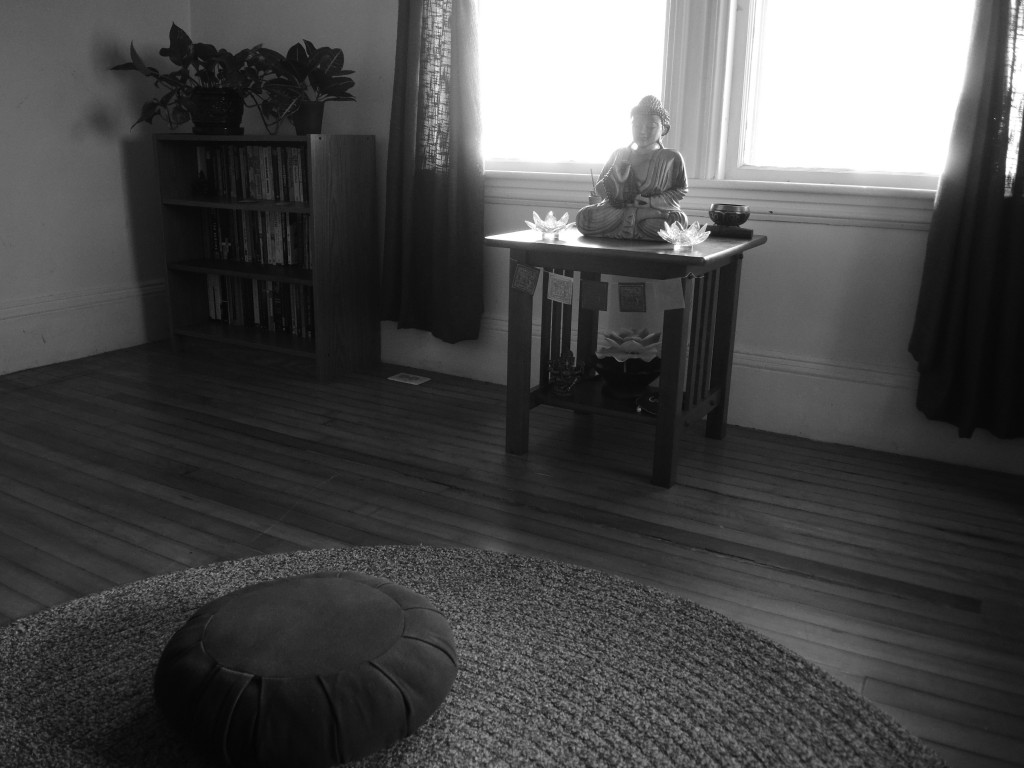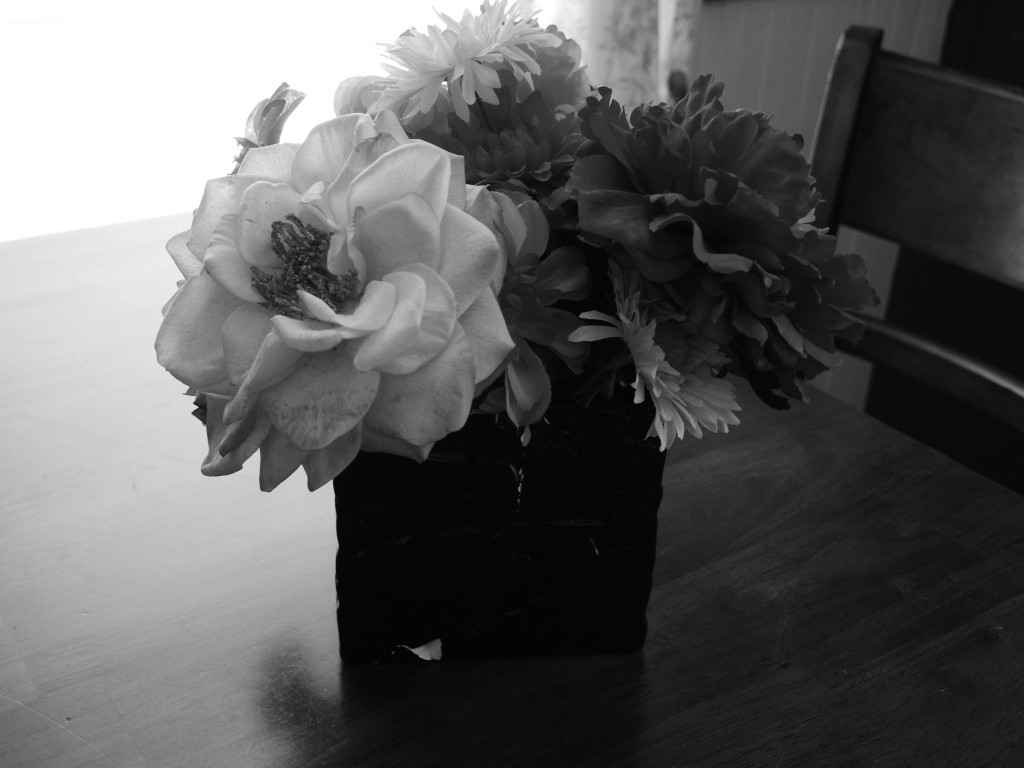A year ago today I woke just as I would have for work, put on my skirt suit normally reserved for job interviews, and walked briskly toward the train station, my fists clenched to protect my hands from the cold morning air. I stood in the doorway of the crowded rush-hour train, felt my stomach turning and contorting into knots, and silently wished I hadn’t eaten breakfast. I was bent over at the corner of the court house replacing my laced sneakers with black heels when my soon to be ex-husband arrived, coffee in hand, looking just as ill as I felt. We were both early.
We made small talk before entering. My heels on the hardwood announced our arrival in the corner court room. We sat along a wooden bench at the back of the room, one of four couples who had come to undo the bond of marriage they’d pledged to uphold “till death.”
We waited an hour before the judge arrived late without explanation or apology and took his seat at the front of the room. At some point in that hour two men in track suits, perhaps taking a break from their morning stroll through town, had come to sit at the bench in the back at the other end from my husband and I. (If watching court room dramas on television isn’t entertainment enough, you can wander into a court house and sit in on the daily divorce dealings free of charge.) I glared at the two men out of the corners of my eyes and wondered what right they had to be present for something so private and painful.
I was thankful the only couple who had brought lawyers were invited up first, granting me the opportunity to observe the proper protocol. While court is in session, talking, gum chewing, reading, and using cell phones are prohibited. One has no choice but to witness and overhear the solemn words of strangers.
When we were called up second I could hear my heels hitting the floor and was aware of the fact that my legs were somehow propelling me toward the front of the room, but I had gone numb. We were asked to raise our right hands and swear to tell the truth by reciting “I do.” The judge shuffled through the 24 pages of legal documents I’d put together on my own after hours of combing through internet sites for legal advice. I was acutely aware of how I was engaging every muscle in my legs, pulling up my thighs above the knee, standing in a perfectly tall and strong mountain pose despite feeling like I might collapse. I studied the grain of the wood on the judge’s bench, thought that he was taking entirely too long to speak.
I don’t remember much of what the judge had to say other than that he repeated the phrase that I’d chosen from the list of reasons why a divorce would be warranted– “irretrievable breakdown”– so many times that I was sure one more repetition would cause me to have an irretrievable breakdown on the court room floor. He asked us to confirm dates and details, looked us in the eyes and said he declared our marriage had suffered an irretrievable breakdown and the court would be sending us the official paperwork in the mail. He knocked his gavel on the desk and with that we were dismissed. I had to practically jog to keep pace with my former husband as he strode out of the court room with military urgency.
When I returned home I sat on my green upholstered recliner chair staring out my front windows feeling like the only thing holding me together was my buttoned and belted suit jacket. Friends who had gone through divorces told me I would feel so much relief. Even though our divorce date came close to two years after we separated, I felt like I’d stepped back in time to that first morning when I woke up alone in an empty apartment.
When my alarm signaled the start of the next morning I didn’t want to get up and face the day. By the time I finally dragged myself out of bed I was running late. I got ready, skipped my morning meditation, and rushed to work. My high school students, having enjoyed free time despite the lesson I’d left the day before, were less than thrilled to get back to work. If there’s one thing sure to invite misbehavior among adolescents it’s a disruption in routine, especially early in the school year. By the end of the day I depended on the cement wall at the door to my classroom to keep me standing on hallway duty.
The next two mornings were more of the same– ignoring all three alarms and rolling out of bed with just enough time to shower, get dressed, gulp down my coffee and rush to work. For the past year I had been reciting a metta prayer each morning and sitting quietly in meditation before beginning the day. This simple practice of loving kindness, of sitting with my breath, of expressing gratitude for another day of life was enough to instill a sense of calm in me throughout the day, no matter how hectic things became. And yet, at a time when I needed it most, I completely abandoned this practice of self-care.
By last period on Friday I was on the verge of collapse. The group of students in front of me were carrying on without care, talking about weekend plans, boyfriends, the newest sneakers, whatever it is teenagers talk about. Unable to find the strength to raise my voice above their chatter, I reached for something to hit against my desk in an attempt to gain their attention. I’d smashed my vase of flowers into the wooden surface three times before I realized that it had cracked and crumbled into pieces in my palms. No one even noticed.
Eventually they caught on, quieted down, and we finished class without further incident. After they left I pieced together the broken vase. It stayed standing though unsteady in the center of my desk for weeks while I tried to find another to replace it.
I returned to my daily meditation practice the next morning, went to yoga, and took a long hike through the woods near my house. I spent the weekend doing things that had helped me through difficult times in the past and I began to rebound back from the divorce and from the difficulties I faced daily.
It was around this time that I learned of the ancient art form in Japan called Kintsugi where broken pottery is pieced back together with gold instead of glue to fill the cracks. The damaged and destroyed are made stronger and more beautiful than before. The scars are transformed into works of art.
Instead of replacing the vase I’d shattered, I decided to glue it back together. The long white cracks across the surface of the black paint served as a reminder of the importance of a daily practice.
When I think back to how I felt a year ago today it’s like remembering a movie about someone else’s life. I have done so much in the past year that I would not have done had I still been married. Today I am stronger and so much more in tune with what I need to do daily to care for myself, to remain happy despite all the hardships that life hurls my way. I know that each time I’m broken down, I come back stronger than before.
I invite you to consider what a self-nurturing daily practice might mean for you. Maybe meditation and metta are not what you need to remain clam and content. Maybe just pausing for a moment to wrap your hands around your coffee mug in the morning and silently savoring the first sip before you begin the bustle of the day is what works for you. Maybe it means listening to a certain song or playlist on the way to work, pausing long enough to notice the blooms in a flower bed, staring up at the sunrise or sunset, expressing gratitude, or sitting down to a family dinner each night. Maybe it’s a combination of all those things and others that keeps you going from day to day, that makes the difference between barely surviving and thriving.





